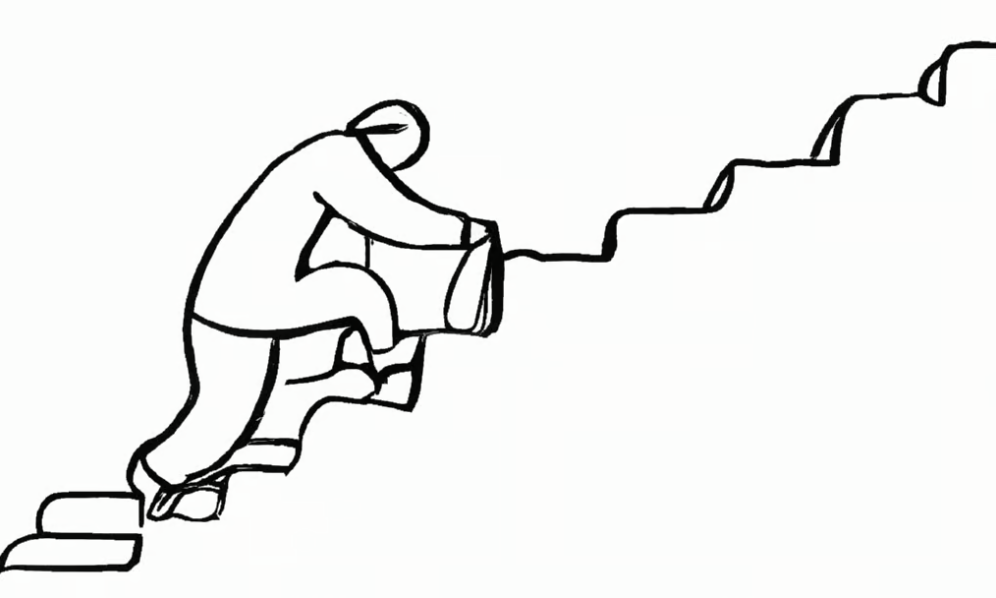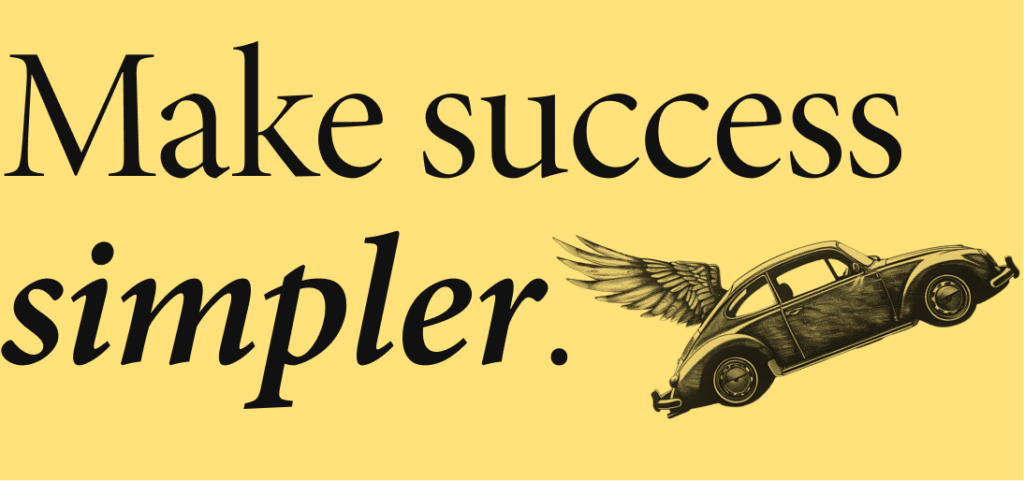Welcome to One Thing Better. Each week, the editor in chief of Entrepreneur magazine (that’s me) shares one way to level up — and build a career or company you love.
Today’s one thing: Doing the best work imaginable.
That one thing, better: Doing the best work possible.

You’re working very hard…
But it’s not enough. It’s never enough. The result isn’t as good or big or fast as you want, and you are stressed and frustrated and demoralized.
Now stop for a moment. Repeat after me:
“I will do the best work with the resources available.”
This has become my mantra. It isn’t sexy. It doesn’t make for a great motivational poster. But it is true and honest and I remind myself of it often, and I want you to have these words whenever you need them.
Today, I’ll tell you why. And how they can help you too.
But first, let’s talk about a guy you’d think has everything…
Here’s advice from Ryan Reynolds.

When Ryan Reynolds was shooting Deadpool, the studio kept shrinking his movie’s budget. At first this was frustrating. Then it forced his team to think more creatively…
And Ryan realized something important.
Here’s what he told me in an interview:
Every time the studio took money away from our budget, we replaced whatever set piece we lost with character. Eventually that became the hallmark and defining characteristic of that property.
People don’t remember saving-the-world kind of nonsense. They remember what he said, or how he reacted to a moment. To me, that lesson is worth its weight in gold, because you can penetrate the zeitgeist and make an impression without spending a ton of money, without busting the bank.
In other words: When you have endless resources, you don’t use them meaningfully. You stop thinking about how to matter.
But when you have limited resources? That’s when you think carefully about how to spend them.
Which brings us back to my mantra…
I’ll remind you of it: “I will do the best work with the resources available.”
Let’s zero in on that second part: “…with the resources available.”
This is where the power really lies — because in all the work we do, we must accept a terrible truth:
We don’t have all the resources.
You do not have enough time to get everything done. You do not have enough money or connections to make things easier. You do not have enough know-how to skip ahead in the journey.
You simply do not. Accept it. You do not have those resources.
And yet, you long for them. You imagine your life with them. You think, “Here’s how far along I’d be, if only I had more…”
Do you see what you’re doing?
You’re comparing yourself to an imaginary version of yourself.
You’re making your accomplishments feel smaller, because they do not match up against a fantasy where you have everything you want.
This isn’t fair. But also, it overlooks something incredibly important:
You may not have all the resources, but…
You don’t have nothing either.
You have… ready for it? You have the resources available.
What are these? They’re whatever you have! Time, money, skills, connections, knowledge, anything. You have these in some quantity. And you can do a lot with them.
But if you’re too focused on what you don’t have, you’ll never be able to maximize what you do have.
I’ll use this newsletter as an example.
Meet professionals like you! Join my community.
I’ll be honest — I pour so much energy into this thing every week. I am proud of it. But it also frustrates me.
Why? Because although it’s growing, I know people with much larger newsletters. So sometimes I think things like: My newsletter would be so much bigger if only I had what they have — more time to write, more expertise, more money to hire a growth expert…
If I spend too much time on this path, I lose focus on what I have.
So let’s refocus right now — for you, and for me.
Ask yourself: What exactly are my resources?
It’s good to see them on paper. Here’s my starter list:
- I’m a good writer
- I have access to smart people
- I have a flexible schedule
- I have a lot of energy
OK! Good!
Now, next question: How can I do my best work with those resources?
Take the resources you listed, and identify the best way to maximize them. Again, I’ll go for myself:
- I’m a good writer — so I can stand out in a cluttered marketplace of newsletters.
- I have access to smart people — so I can, say, interview people who write great newsletters, and ask for their strategies.
- I have a flexible schedule — so I can set aside enough hours to make my newsletter high quality, and also devote a lot of time to LinkedIn (which is a great source of new subscribers).
- I have a lot of energy — so I can write back to everyone who replies to my newsletters (try me!) and I’ll make people feel happy and heard, and also get a sense of what they want.
Does this mean I’ll gain 100,000 subscribers a month? No. I must live with the fact that my growth is slower than some others’.
But whatever. I cannot get lost in outcomes I cannot control.
This is basically what Ryan Reynolds did. He lost budget for expensive movie things, so he asked himself: What do I have? And he had the ability to write great dialog. So he maximized that.
And it’s what mattered.
Your resources are all around you.

Let’s say you’re working a full-time job. You need the money and can’t quit, but your real passion is your side gig. It’s going slower than you’d like. Is it worth obsessing over how far along you’d be if you had more time — or is it worth focusing on how to make the most of the time you have?
Let’s say you’re in a relationship where many things are working, but some things are not. Is it worth comparing that against a perfect fantasy of the relationship — or maximizing the best parts, while working to solve the parts that don’t work as well?
Let’s say your career hasn’t gone exactly how you’d planned. Is it worth comparing your life against one where you made different decisions, or using whatever you have now to build towards something better?
This isn’t an easy way to think. It means patience. It means sacrifice. Frustrations will be natural.
But ultimately, it’s a question of outcome.
So here’s my final question to you: Do you want to get it done?
I’m talking about whatever you’re doing. Whatever you want. Whatever you dream of. Do you want to get it done? If the answer is yes, then what-ifs and regrets and feelings of inadequacy will not get you there.
Here’s what will: It’s what you have. What you already have. What you can build from and towards. What you can grow into. What you can shape. What matters to you, and will matter to others. What is within your means. What is real. What is possible. What you can touch and feel and control and foster and develop and enable and create and make incredibly meaningful.
It is your best work, done with the resources available.
That’s how to do one thing better.
